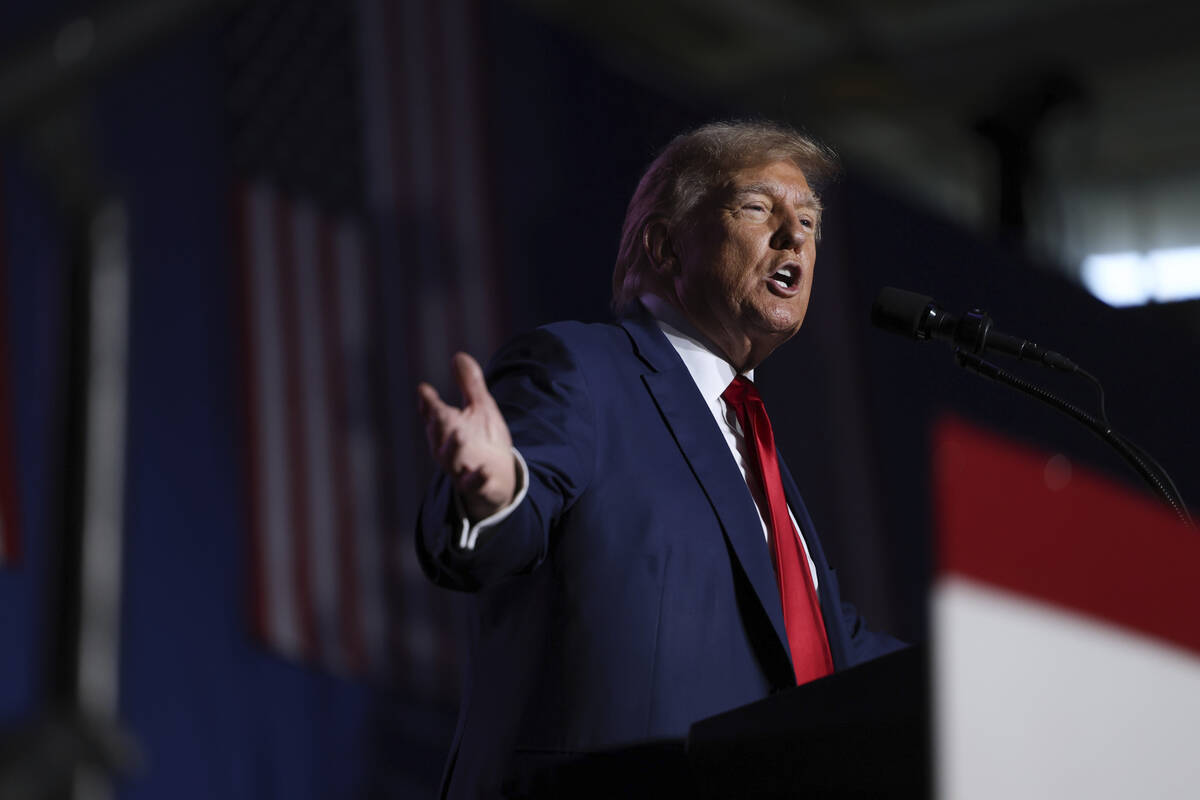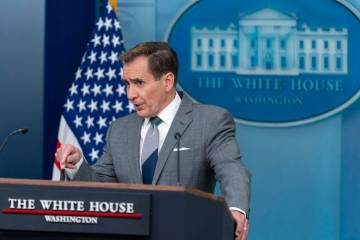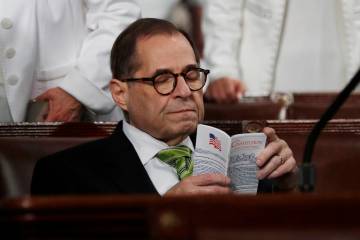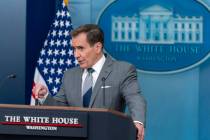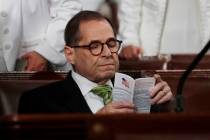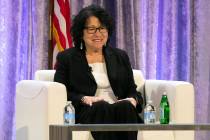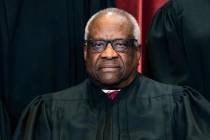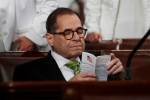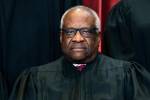DEBRA J. SAUNDERS: Backlash anyone? The partisan efforts to keep Trump off ballots
Editor’s note: Debra J. Saunders, the Review-Journal’s White House correspondent from 2017 to 2021, returns today as the newspaper’s Washington columnist. Her columns will appear two to three times weekly.
WASHINGTON
Former President Donald Trump’s legal battle with Maine Secretary of State Shenna Bellows fits a pattern that played through 2023. It’s complicated — and so in the weeds that it feeds the impression that state and local officials who pursue Trump have a partisan agenda and a tendency to overreach.
As four different prosecutors charged Trump with 91 crimes, Trump’s poll numbers among GOP primary voters have skyrocketed. Et tu, Maine?
On Dec. 28, Bellows struck Trump from Maine’s GOP primary ballot because, she wrote, he “engaged in insurrection as defined by Section Three of the Fourteenth Amendment” and therefore does not qualify for the office of the presidency.
Tuesday, Trump’s legal team fought back with an appeal, just days ahead of the Jan. 15 Iowa caucus. The brief argued that Bellows was “a biased decision maker who should have recused herself.” Trump, you see, only approves of bias that cuts his way.
In December, the Colorado Supreme Court issued a 4-3 decision to exclude Trump from Colorado’s primary ballot. Like Maine’s primary, Colorado’s election is held March 5.
Both Maine and Colorado have kept Trump’s name on their states’ ballots so Trump can appeal.
In terms of optics, however, the timing couldn’t be worse.
A number of legal scholars have questioned Bellows’ maneuver, although this is a matter with so little precedent it’s difficult to figure what the court will decide.
Bellows and all seven Colorado Supreme Court Justices are Democrats. In this era of hyper-partisanship, it’s a lot to ask possible Trump voters to trust actions that could have such an outsized role in a national election, based on a technicality that for many seemingly came out of nowhere.
As University of Virginia law professor Saikrishna Prakash offered, “It’s not a good look.”
Shouldn’t voters decide who wins the Maine and Colorado primaries?
It’s one thing for the courts or an election official to block a candidate who doesn’t meet objective criteria — say, he is not registered to vote, or she is not at least 18 years old.
It’s another to watch Bellows, who is not a lawyer, go where no court has gone before by relying on her idea of what qualifies as “insurrection” or “engaging” in an insurrection.
“I am mindful that no Secretary of State has ever deprived a presidential candidate of ballot access based on Section Three of the Fourteenth Amendment,” she added. “I am also mindful, however, that no presidential candidate has ever before engaged in insurrection.”
No criminal charges have been filed against Trump for insurrection in connection with the Jan. 6, 2021, attack on the Capitol, and hence there has been no trial — which could make Trump, Prakash quipped, a “non-adjudicated insurrectionist.”
Savvy Democrats fear a backlash.
California Gov. Gavin Newsom reacted to the Colorado court’s action with this statement: “There is no doubt that Donald Trump is a threat to our liberties and even to our democracy. But in California, we defeat candidates at the polls.”
The Maine and Colorado actions appeared destined to end up before the U.S. Supreme Court, which has the authority and expertise to craft a ruling on this narrow issue. Sure enough, the Trump campaign on Wednesday filed an appeal with the high court against the Colorado decision.
Whatever the court rules, one side of the partisan divide will be angry. But at least the result won’t be the work of amateurs.
Contact Review-Journal Washington columnist Debra J. Saunders at dsaunders@reviewjournal.com. Follow @debrajsaunders on X.



